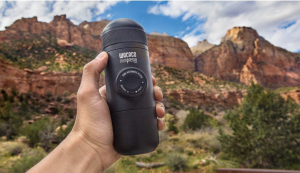Roof tents are a great way to enjoy the outdoors. Whether you’re camping, fishing, hunting, or just exploring nature, roof tents provide an easy and comfortable place for you to spend time outside. But with so many different brands and models on the market today it can be hard to choose the right one. This post will help break down the process of choosing a roof tent step by step so that you can make an informed decision about which one is best for your needs
Table of Contents
What is a Roof Tent?
A roof tent is a specially designed tent that attaches to the top of your vehicle. Most are made from sturdy, waterproof fabrics and can be mounted on most cars or trucks by using clamps or brackets. Most roof tents include a ladder for easy access to the tent and most also come with their own built-in mattress.

Why is it better than sleeping in my car?
Roof tents allow you to sleep above ground, away from bugs or wet conditions on the ground. They are easier and more comfortable than trying to sleep in your car seat. Roof tents also provide a large amount of space, which is ideal for families. They offer protection from rain and sun while still allowing you to enjoy the great outdoors.

How To Choose The Right Roof Tent For You
- Compatibility: You’ll need to make sure that your tent of choice is compatible with the type and size of the vehicle you drive. It’s a good idea to check out which vehicles specific models are designed for before making a purchase. If you plan on moving your rooftop tent from car to car, then this should not be an issue since most tents can be mounted on most cars. However, if you plan to keep your rooftop tent permanently installed on one vehicle then make sure it is compatible with that car or truck before purchasing.
- Price: Roof tents are not cheap and neither are the accessories required for installation. If this is going to be an investment in your future adventures, then it’s best to do your research and find the tent that has the features you want at a price you can afford. There are many different brands on the market today, all with their own unique benefits and disadvantages so be sure to choose one that fits both your needs as well as your budget.

- Capacity: Capacity should be the first thing you consider when choosing a roof tent. How many people will need to fit inside? The answer to this question depends on your needs and what type of camping you’re doing. If it’s just one person, then most tents can hold up to 275 lbs so long as they don’t exceed the width and length dimensions of the tent. If it’s a family, then you’ll need a larger one that can accommodate increased weight and space requirements.
- Weight: The next thing to consider is how much your rooftop tent weighs because this will determine what type of vehicle you can use with it. Most tents weigh anywhere from 60-90 lbs so if your car or truck is on the smaller side, it might not be compatible.
- Size: Roof tents are also measured by their dimensions so you’ll need to determine what size will fit in your vehicle before making a purchase. Most rooftop tents have measurements of 60″ X 55″ X 25″. If you want something with more space or that can accommodate additional people, then you’ll need a bigger one.
- Material: There are a few different materials that tents come in, each with its own advantages and disadvantages. If you’re going to be driving on rough or uneven terrain then it’s best to choose one made from aluminum material because they’ll hold up better than other types of rooftop tents.
- Construction: Roof tents can either built in two ways; as a pop-up or as a permanent fixture. A pop-up roof tent is usually one that’s easy to set up and takedown, making it perfect for those who aren’t camping often. Permanent tents are better suited for regular campers because they’re sturdier and more reliable but require some installation work before you can use them each time you go camping.
Some roof tents come with accessories that make them even more useful and convenient to have along on your adventures. If you want a tent with this added benefit, then you’ll need to consider the type of accessories it has before purchase because some are better than others for certain needs. The most common additional features found in rooftop tents are mosquito nets, internal storage bags, and awnings.

TH PROS OF A ROOFTOP TENT
- Quick and easy setup: Roof tents are great for those quick overnight or weekend trips because they can be set up and taken down in minutes.
- Compact storage: Rooftop tents are a great space saver because they can be folded up in a matter of minutes and stored away in the trunk or backseat, leaving plenty of room for other gear.
- Convenient: Rooftop tents allow you to get off the ground when sleeping which is much more comfortable than sleeping on the ground.
THE CONS OF A ROOFTOP TENT
As beneficial as they are, there are also a few cons to using roof tents.
- Price: Roof tents are not cheap and neither are the accessories required for installation. If this is going to be an investment in your future adventures, then it’s best to do your research and find the tent that has the features you want at a price you can afford.
- Weight limit: Most tents have a weight capacity that should be strictly adhered to. If you exceed the weight, then it can damage your vehicle and potentially cause an accident so be sure not to go over the maximum weight limit.
- Installation: You’ll need to figure out how to install your rooftop tent before you go anywhere, taking the time and effort that goes into installation into account.

Accessories
Some roof tents come with accessories that make them even more useful and convenient to have along on your adventures. The most common additional features found in rooftop tents are:
- Mosquito Nets: Mosquito nets are excellent at keeping bugs out of your tent. These can be placed above the bed inside to prevent any unwanted guests from getting into your sleeping space, or they can act as a barrier between you and the outside world while you’re camping with an open roof.
- Internal Storage Bags: Storage bags provide additional storage space for your belongings. This makes it easy to keep all of your gear organized and stashed away from animals that might be looking for something to eat.
- Awnings: Awnings provide a larger living space outside the tent where you can sit, relax, or cook without having bugs flying around everywhere. Most come with additional exterior pockets for storing additional items.

What to avoid when choosing a roof tent.
When you’re ready to choose your next rooftop tent, there are certain things you’ll want to avoid because they could potentially cause problems for you down the road.
- Weight: The weight of your rooftop tent and accessories is probably something that’s already top of mind, but it’s still worth mentioning. If you go over the weight limit, then your rooftop tent can potentially damage your vehicle and even cause an accident so be sure to carefully check the weight limit of your tent and accessories before you go anywhere.
- Accessories: Many rooftop tents come with a wide range of accessories, but some are better than others. You’ll want to carefully consider the kind of features you need and compare those with what’s included so you don’t end up with accessories you won’t ever use.

FAQ
Q. How much do roof tents typically weigh?
A. The weight of a rooftop tent varies from model to model, but most range between 80 and 200 pounds.
Q. All rooftop tents come with accessories, but which ones are the most useful?
A. Mosquito nets and awnings are the most useful because they provide additional living space and protection from bugs.
Q. Where should I store my rooftop tent?
A. If you have a van or SUV, then the trunk is probably the best place to store your rooftop tent so it won’t take up a lot of room in the vehicle.
Q. How much weight can a rooftop tent hold?
A. Most rooftop tents have a maximum weight capacity of around 300 pounds, but it’s best to always check the specifications so you don’t exceed the limit.
Q. What size tent should I get?
A. The size of your rooftop tent will depend on the length and width of your vehicle, as well as how much sleeping space you need. If you plan to bring a lot of equipment with you, then it’s best to get one that is slightly larger than your needs.
Q. What kind of roof rack do I need?
A. You’ll need to make sure your vehicle is equipped with the proper roof rack before you choose a rooftop tent. If your vehicle doesn’t have one that’s compatible with the tent, then it will need to be installed before you can use the rooftop tent.
Q. What is a pop-up rooftop tent?
A. A popup rooftop tent opens and closes like a regular tent, but it has a solid roof to protect you from the elements. This makes them great for camping in any kind of weather and they’re also very easy to set up.
Q. How do I attach a rooftop tent?
A. You’ll need to install the rooftop tent onto your roof rack before you can attach it to the vehicle. This is necessary for proper weight distribution and protection from weather conditions like snow or rain that could potentially cause damage.
Q. How do I prepare my rooftop tent for use?
A: To prepare your rooftop tent, you’ll need to attach it to the roof rack and then open up the tent so you can get inside. Fill any storage bags with your gear or other necessary items, and make sure the inside of the tent is clean and free from dirt or debris.
Q: What kind of vehicle do I need for a rooftop tent?
A: Most rooftop tents are designed to fit on vehicles that have a standard or flush-mounted rear crossbar, but there are exceptions. If you’re not sure whether your vehicle is compatible, then check the specifications of the tent to find out if it’s recommended for use with your vehicle.
Conclusion
if you’re looking for a convenient and comfortable way to sleep outdoors then a rooftop tent is the perfect solution. Just keep in mind that there’s a bit of an investment involved so make sure it’s worth it before making one yourself










